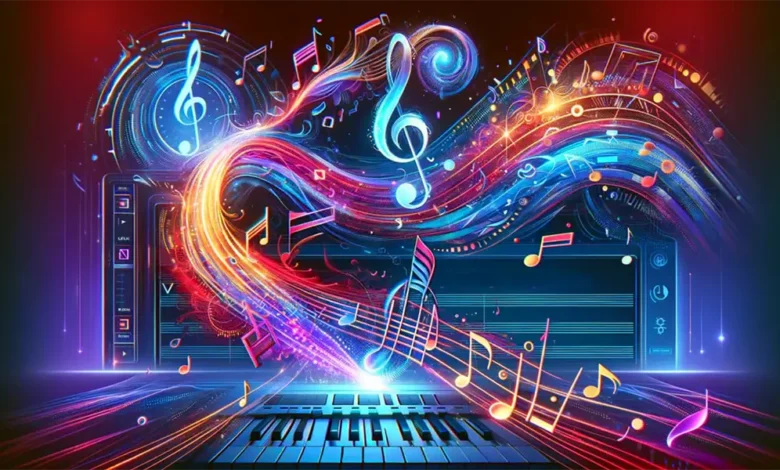Exploring Options Related to AI Music Generator: Tools, Use Cases, and Future Potential

Artificial Intelligence (AI) has become an influential force across many creative industries, and music is no exception. One of the most practical innovations in this space is the AI music generator—a technology that uses machine learning algorithms to compose music. Whether you’re a content creator, musician, educator, or developer, there are now numerous options related to AI music generators that can enhance productivity, creativity, and customization.
In this article, we explore the most relevant tools, use cases, and features that make AI music generators a compelling choice for modern music creation.
What Is an AI Music Generator?
An AI music generator is a software application or platform that uses artificial intelligence to create music. These tools are trained on vast libraries of songs and compositions to understand musical structures, styles, and patterns. Based on this training, the Options Related to AI Music Generator can compose entirely new tracks in a variety of genres—often in a matter of minutes.
Now, let’s look at the key options available for anyone considering AI-powered music generation.
1. Popular AI Music Generator Platforms
There is a growing range of AI music tools catering to different needs and user skill levels. Here are some of the most widely used options:
AIVA (Artificial Intelligence Virtual Artist)
- Best for: Film scoring, classical compositions
- Features: Mood customization, multi-instrumental support, sheet music output
Boomy
- Best for: Social media content, indie music creation
- Features: One-click song generation, publishing to Spotify and Apple Music
Amper Music
- Best for: Marketing teams, video editors
- Features: Royalty-free music, emotional tone adjustment, quick edits
Soundraw
- Best for: Video creators, advertisers
- Features: Mood/scene-based music creation, timeline editing, royalty-free licensing
Ecrett Music
- Best for: Game developers, YouTubers
- Features: Drag-and-drop editing, downloadable loops, genre-based suggestions
2. Integration Options and Workflow Tools
Some AI music generators integrate with popular creative tools and platforms, enhancing your workflow:
- DAW Plugins: Tools like Orb Composer or Captain Plugins integrate with digital audio workstations (DAWs) for real-time AI-assisted composition.
- API Access: Platforms like OpenAI’s MuseNet or Jukebox offer API-level integration for custom development.
- Cloud-Based Interfaces: Many AI music tools are web-based, allowing for easy collaboration and cloud storage.
These integration options make AI music accessible and adaptable for professionals working across audio, video, and digital platforms.
3. Customization and Control
A major strength of AI music generators is the degree of control they provide. Users can adjust:
- Genre (e.g., hip-hop, classical, ambient, EDM)
- Tempo (slow, medium, fast)
- Mood (happy, sad, dark, epic, calm)
- Instruments (piano, drums, synth, strings, etc.)
This allows for high levels of personalization, making the generated music more relevant to specific use cases like brand videos, app background music, or film soundtracks.
4. Use Case Options Across Industries
AI music generators are now being used across a range of industries:
| Industry | Use Case Example |
| Content Creation | YouTube background music, podcast intros |
| Gaming | Dynamic soundtracks that adapt to gameplay |
| Marketing | Music for ads, product demos, and social media |
| Education | Teaching tools for composition and music theory |
| Music Production | Songwriting assistance, genre exploration |
These versatile use cases show how AI music tools can be applied far beyond just composing a song.
5. Open-Source and Developer Options
For more tech-savvy users, there are open-source and research-grade options available:
- Magenta (by Google): Provides models and code for AI music generation and performance.
- MuseNet (by OpenAI): Can generate multi-instrumental music with long-term structure.
- Jukebox (by OpenAI): A neural network that generates music—including lyrics and vocals—from scratch.
These tools are ideal for researchers, developers, and audio engineers looking to build custom AI music systems or explore the limits of generative AI.
6. Licensing and Commercial Use Options
When using AI-generated music for commercial purposes, it’s important to choose platforms with clear licensing terms. Many tools offer:
- Royalty-free tracks for unlimited commercial use.
- Attribution requirements or full ownership depending on subscription level.
- Custom licenses for enterprise-level users.
Always verify the licensing model to ensure your content remains compliant and monetizable.
Conclusion
The landscape of options related to AI music generators is rich and rapidly evolving. Whether you’re looking for quick, royalty-free background music or a sophisticated tool to assist in professional composition, there’s an AI solution that fits your needs.
From ready-to-use platforms to customizable APIs and open-source frameworks, AI music generators are making music creation faster, smarter, and more accessible than ever before.
As technology advances, expect even more powerful and personalized tools to emerge—bringing us closer to a world where anyone can create music, instantly and effortlessly.